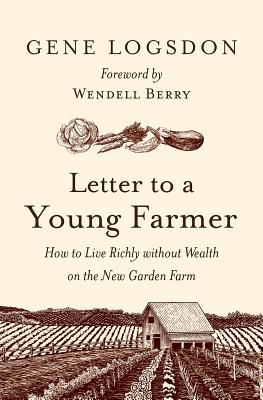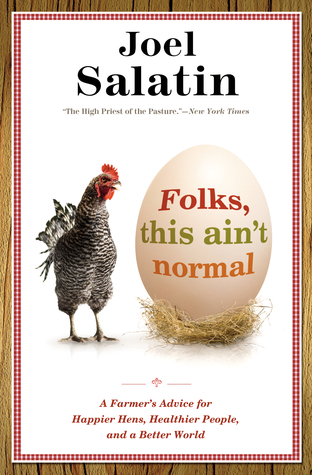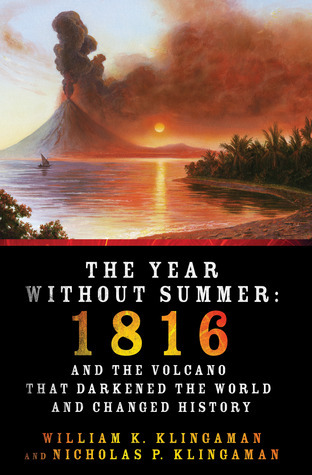This month, the IdleGuy.com library offers a useful collection of books with insights on gardening and farming, mainly for the backyard homeowner wishing to put good, nutritious food on his or her family's table or for people interested in better food and nutrition through sustainable small-farming.
For more than four decades, the self-described "contrary farmer" and writer Gene Logsdon commented on the state of American agriculture. In Letter to a Young Farmer, his final book of essays, Logsdon addresses the next generation of young people moving back to the land to enjoy a better way of life as small-scale and garden farmers.
It's a lifestyle that isn't defined by accumulating wealth or by the "get big or get out" agribusiness mindset. Instead, it's one that recognizes the beauty of nature, cherishes the land, respects our fellow creatures, and values rural traditions. It's one that also looks forward and embraces and "right technologies," including new and innovative ways of working smarter, not harder, and avoiding premature burnout. Completed only a few weeks before the author's death, Letter to a Young Farmer is a remarkable testament to the life and wisdom of one of the greatest rural philosophers and writers of our time. Gene's earthy wit and sometimes irreverent humor combines with his valuable perspectives on many wide-ranging subjects, from how to show a ram who's boss to enjoying the almost church-like calmness of a well-built livestock barn.
Gene Logsdon was the best kind of teacher: equal parts storyteller, idealist, and rabble-rouser. His vision of a nation filled with garden farmers based in cities, towns, and countrysides will resonate with young and old, longing to create a more sustainable, meaningful life for themselves and a better world for all.
With visceral stories and humor from Joel Salatin's half-century as a "lunatic" farmer, the author conveys ideas for rural living that are practical, spiritual, social, economical, ecological, political, and nutritional.
Contrasted to the contemporary conventional food-production paradigm, any farm that is open-sourced, compost-fertilized, pasture-based, portably-infrastructured, solar-driven, multi-speciated, and soil-building must be operated by a lunatic. Modern, normal, "reasonable" farmers erect "No Trespassing" signs, deplete soil, worship annuals, apply petroleum-based chemicals, produce only one commodity, erect Concentrated Animal Feeding Operations, and discourage young people from farming.
Anyone looking for ammunition to defend a more localized, diversified food system will find an entire arsenal in these pages. With wit and humor honed during countless hours working on the farm he loves, and then interacting with conventional naysayers, Salatin brings the land to life, farming to sacredness, and food to ministry.
Divided into four main sections, the first deals with principles to nurture the earth, an idea mainline farming has never really endorsed. The second section describes food and fiber production, including the notion that most farmers don't care about nutrient density or taste because all they want is shipability and volume. The third section, titled "Respect for Life," presents an apologetic for food sacredness and farming as a healing ministry. The book postulates that only lunatics would want less machinery and pathogenicity. Oh, the ecstasy of not using drugs or paying bankers. How sad. The final section deals with promoting community, including the notion that more farmers would be a good thing.
From farmer Joel Salatin's point of view, life in the 21st century just ain't normal. In FOLKS, THIS AIN'T NORMAL, he discusses how far removed we are from the simple, sustainable joy that comes from living close to the land and the people we love.
Salatin shares practical and philosophical ideas for changing our lives in small ways that have big impact. Hailed by the New York Times as "Virginia's most multifaceted agrarian since Thomas Jefferson," "the high priest of the pasture" and profiled in the Academy Award nominated documentary Food, Inc. and the bestselling book, The Omnivore's Dilemma, Joel Salatin understands what food should be: wholesome, seasonal, raised naturally, procured locally, prepared lovingly, and eaten with a profound reverence for the circle of life.
His message doesn't stop there. From creating quality family time to respecting the environment, Salatin writes with a wicked sense of humor and true storyteller's knack for the revealing anecdote. Salatin's crucial message and distinctive voice is practical, provocative, scientific, and down-home philosophical.
Like Winchester's "Krakatoa," The Year Without Summer reveals a year of dramatic global change long forgotten by history. 1816 was a remarkable year, mostly for the fact that, in many parts of the world, there was little to no summer. It became known as the year, "18-hundred-and-froze-to-death."
As a result of a volcanic eruption in Indonesia, weather patterns were disrupted worldwide for months, allowing for excessive rain, frost, and snowfall through much of the Northeastern U.S. and Europe. In the U.S., the extraordinary weather produced food shortages, religious revivals, and extensive migration from New England to the Midwest.
In Europe, the cold and wet summer led to famine, food riots, the transformation of stable communities into wandering beggars, and one of the worst typhus epidemics in history.
William K. Klingaman and Nicholas P. Klingaman deftly examine the unusual weather and climate change engendered by this event, but also its effects on politics, economies, arts, and social structures.
The stories conveyed by the authors offer some "just-in-case" background for an unlikely event.
 Letter to a Young Farmer by Gene Logsdon (2017)
Letter to a Young Farmer by Gene Logsdon (2017)
 The Sheer Ecstasy of Being a Lunatic Farmer by Joel Salatin (2010)
The Sheer Ecstasy of Being a Lunatic Farmer by Joel Salatin (2010)
 Folks, This Ain't Normal: A Farmer's Advice for Happier Hens, Healthier People, and a Better World by Joel Salatin (2011)
Folks, This Ain't Normal: A Farmer's Advice for Happier Hens, Healthier People, and a Better World by Joel Salatin (2011)
 The Year Without Summer: 1816 and the Volcano That Darkened the World and Changed History by William K. Klingaman and Nicholas P. Klingaman (2013)
The Year Without Summer: 1816 and the Volcano That Darkened the World and Changed History by William K. Klingaman and Nicholas P. Klingaman (2013)
|
|||
| search engine by freefind |
Your ad could be in the next issue of idleguy.com for as little as $6 per month. Contact Fearless Rick using the form on page 12 for more information.
Also, this month:
 The Black Swan: The Impact of the Highly Improbable by Nassim Nicholas Taleb (2007)
The Black Swan: The Impact of the Highly Improbable by Nassim Nicholas Taleb (2007)